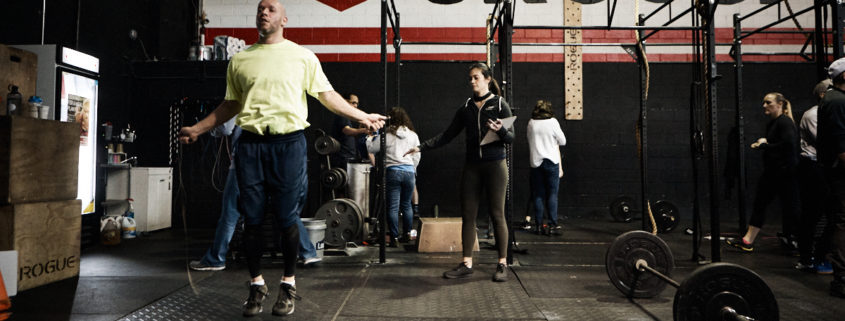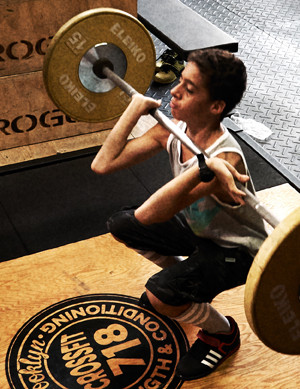8 Tips for Judging Your First CrossFit Competition
This article appears courtesy of The Box Magazine. Read the original version here.
Judging your first CrossFit competition can be a source of anxiety. Follow these tips to judge with confidence and accuracy.
By Jenessa Connor
By the time the judges at Regionals step foot in the arena, they’ve received Level-1 certification, passed an online judges course and, most likely, already judged a number of other CrossFit competitions. But most community events — the fundraisers and throwdowns that happen at your own local box — are staffed by volunteers who may have little to no judging experience. This means that you, regardless of your credentials or lack thereof, may be asked to grab a clipboard and get to work.
For some CrossFitters, this isn’t a big deal. For others, it’s a major source of anxiety. Most of us don’t want to be on either end of a “no rep,” and losing count on kettlebell swings is way worse when they’re someone else’s (and there’s a cash prize on the line). Plus, there’s a big different between adhering to movement standards and assessing another athlete’s performance.
But newbie judges should know this: The CrossFit community needs you. Countless competitions would never happen without volunteer judges.
Also, once you get the hang of it, being an integral part of the game-day action can be a lot of fun. Here are eight tips for judging your first CrossFit competition with confidence and accuracy.
1. Know All Movement Standards Inside and Out.
Most competitions will announce required lifts and movements well in advance of the competition. Set aside time to read up and watch videos on each component of the WOD (CrossFit.com and the CrossFit Journal are good resources). Be sure you understand what makes a good rep and be aware of common mistakes, like not hitting the target on wall balls or failing to lock out the arms during handstand push-ups.
2. Practice on Your Friends.
While online research is a great place to start, it’s important to see what the competition movements look like live and on real people who don’t have fitness-model form. Ask a friend to run through a practice round and throw you a few bad reps so you can get used to making accurate calls.
3. Prep as If You Were Competing.
Get a good night’s sleep, eat breakfast, dress comfortably and stay hydrated. Competitions can be chaotic and last for hours. They require stamina, even when you’re not competing. You owe it to yourself and the athlete you’re judging to be well-rested and as sharp as possible.
4. Ask Questions.
The individual or team running the event will usually review all competition movements and lifts before the first heat. Don’t be afraid to ask for clarification on anything about the rules, WODs or order of events. Chances are someone else has the same question.
5. Communicate With Your Athlete.
While providing guidance or encouragement is a no-no (it shows bias), it’s fair to shake hands and quickly confirm how you’ll be verbalizing reps. For example, if a chipper includes 100 double-unders, you’ll probably only want to count every 10th rep out loud. Also, some athletes will wait for a verbal cue like “Good” before releasing a lift. Making sure you’re both on the same page regarding these small but important details will spare you unnecessary confusion once the clock starts.
6. Get a Good Vantage Point.
You can’t judge a rep if you can’t see it. Once you get a lay of the land, map out where and how you’ll position yourself for each part of the WOD. For example, standing directly in front of your athlete may work best for judging kettlebell snatches, but you may want to stand to the side and take a knee when judging sit-ups.
7. Qualify Your “No Rep” Calls.
Getting no-repped sucks. Not knowing the reason for the call and getting no-repped again sucks even worse. Be sure you’re clearly communicating why the movement was bad. Be loud enough so that the athlete can hear you over the music and crowd, and use short, simple phrases like “break parallel,” “lock out the arms,” “clean from the ground,” etc.
8. Be Firm.
A wishy-washy judge is useless to the competition organizers and the participating athletes. They need competent people who can perform the job with self-assurance. Use a clear, confident voice when counting reps and making calls. If an athlete challenges you, get a competition organizer involved immediately. Be polite and professional, but remain calm and firm. If do you research and come prepared, this shouldn’t be a problem.





